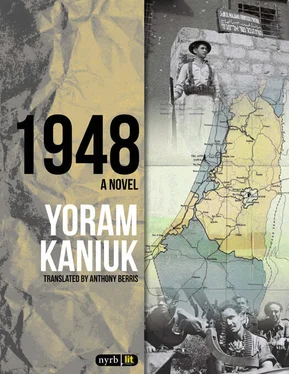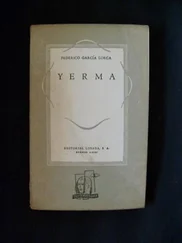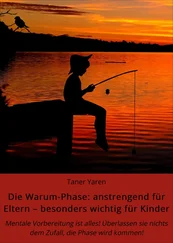I can barely remember the girls in the brigade. They were older than me. They belonged to the big, strong, senior guys, and to me they seemed as if they’d come from another world. I was shy, but I wanted some gentleness to touch, and a dream came to me that I remember to this day, sixty-two years later. I dreamed I was sitting in a deck chair on Frishman Beach in Tel Aviv with an older girl, her hair falling onto me as she bent over me, her lips moving closer to mine, and suddenly a kiss materializes out of nowhere, outside me and outside her. And the girl shifts and says something nice, and I look at her and she fades away.
I remember that after Jimmy’s body was brought to the church in Abu Ghosh, his father, the painter Menachem Shemi, raised the blanket covering him and didn’t make a sound. He took out a sketchbook and pencil and for a long time drew his dead son’s face, and not a muscle in his own face moved. He was concentrating as if he himself had died instead of his handsome son.
Afterward I was taken by a girl, I can’t remember who, to drink water from a jara . We sat in the shade of an old fig tree. She said she’d had enough of all this death. Perhaps I loved her for a moment. She put the jara down in the shade and said, Guess what I’m dreaming about? And I thought, What does a girl dream about? Death is the opposite of a young woman and it ruled everything. We’d just seen a painter sketching his dead son. What does she dream about? I didn’t know and she forgot her question, which hung in the air after she got up and vanished, and I remember thinking that I wanted her to go even though it was the pleasantest, most tranquil, sweetest, and wonderful moment I’d had in my life so far, which had been pretty short at the time.
Our Palmach girls dressed simply, which didn’t detract from their beauty. During the war they left their dreams for another time, but this friend couldn’t withstand the temptation despite the sodium bicarbonate they gave us to suppress our sexual desire, as it was called back then. This friend, not really a friend, we had a few photographs that had been taken of us together, met a girl, gave her a child, and became a father at an age at which we still thought we’d go back home and our mother would breastfeed us.
There was another girl who brought water or milk to the fighters, I don’t remember where we were. For me she epitomized our lost innocence; for her beauty, or force, was solely an option. She was apparently a Zionist. She believed in purity of the spirit. Her mental angle neutralized pathos. Then eyes met the exposed knee but the knee was exposed not like today, to sell meat, not like today where the woman is meat on a hook in the market with everything exposed, but because of the weather, and because it was nice when the wind caressed the leg, stroking it with silent words. Back then they sang: “The wind ruffles the hem of her dress.” She is eternally frozen in my memory, passing alone between the sandbags, her expression shy, her shirt buttoned, on her head a steel helmet that had perhaps been taken as booty, shy and smiling, something humble in her, but not without strength. Back then a young girl was like a floral coronet adorned with a bunch of thistles, her sweet, innocent, and sad expression was part of a secret.
One day we heard that the British were leaving the Generali Building in Bevingrad, which was their largest complex in Jerusalem. We drove into the city in armored vehicles and trucks and waited until they left, but were too late. The Jerusalemites had swooped on the complex the moment the British left and taken most of the clothing, and by the time I got there, dressed in my filthy rags, all that was left was a British sailor’s white shirt with its striped collar, just like the ones we wore as kids when we went to have our photograph taken in Nachalat Binyamin Street.
I walked with somebody, possibly my friend Avinoam, perhaps down the street, and it was pleasant, the shells falling on us in heaps but we paid no heed, if one kills us then it’ll kill us, and the experts said back then that everyone had a number. We’d take out the only photo of our unit, where and when it was taken I don’t remember, and we’d black out the dead and look at ourselves in the knowledge that tomorrow or the day after they’d be blacking us out too. I imagined being the pungent stink of a corpse, which wasn’t in my imagination at all but the stink of real corpses that were lying in a shop doorway. We lost our way and ended up in Me’a She’arim*.
There was a morning mist or it was a gray afternoon, I remember that walking was difficult, as if the blast of the shells was pushing us back. Nobody paid any attention to the bodies in the doorway and our senses were swept up into a horror lacking enjoyment. We came to a place I didn’t comprehend. I’d been there once with my father, who liked to buy old books at the monasteries, and Hasidic books in Me’a She’arim. It’s something alien to someone born in Tel Aviv, that ancient, hostile, and daunting fortress of Me’a She’arim. The white flags of surrender still fluttered on the rooftops. People saw us and shouted that we were blasphemers, building a homeland for heretics. I looked at them, they could hear the shells and knew that each one had a name on it, but they were unafraid.
I admired their lack of fear, their devotion. The fact that they did not blame any person or friend or god. They had the Almighty to either protect or slaughter them. But I couldn’t understand their contempt for us. They didn’t hate the Arabs, they hated us. As my father once said in a moment of grace, We should not have breached the wall, revolted against the Kingdom of Heaven to establish a state without a messiah. We were two different peoples. They’ve come to wipe us out, somebody shouted, and we halted. The children became more insolent from one moment to the next.
All this gave me a longing for something unknown to me. A tall man approached us, one of God’s soldiers with the whole traditional costume, and said something in Yiddish. I didn’t speak Yiddish and he jeered at me by blowing his nose loudly and saying in Book of Lamentations Hebrew that he wants us to join him at a wedding in one of the small halls, where they had been expecting the Arabs’ victory, and we could no longer delay the end and pose a threat to the Messiah, who would come if we let him and didn’t fight him. I told him that at the entrance to the quarter we’d seen a few bodies, and he riposted, That’s all right, they’re not ours, your civil guard will take them away.
We accompanied the tall, thin man to a small, sweaty hall and saw men dancing a heavy-footed hora filled with an old, extinguished splendor. There were no women, and above the partition I saw a young girl, evidently the bride, who didn’t look more than twelve or thirteen, as she was borne aloft. She looked happy, but also in her eyes was a kind of plea, like Go already, you’re confusing me with your vanities, which were nothing more than our submachine guns and ammunition pouches and the grenades hanging from our belts in the event that we had to kill ourselves, and I even had a half-full canteen.
The man said, Now sing. We didn’t know what to sing. Their Shabbess , the shouts, the white flags they hoisted against us. Through the partition we could see the eyes of the screaming women, only their eyes peeping through the holes.
And then, out of a sadness bearing a great deal of yearning for myself, being as I was outside the entire Eretz Yisrael experience I knew, outside the war, Zionism, the songs about Sheikh Abrek and death, I felt a hidden happiness. It was a happiness also directed against that monk by Notre Dame. Now I was abroad, in the house of my grandfather, whose existence my father refused to acknowledge. I was with Grandfather Mordechai the baker from Amos Street in Tel Aviv, who baked the challahs loved by so many people. I’d go to him on Fridays to get the challahs for home and see the sadness in his eyes, and Grandmother Malka hiding in a room sealed with blankets because she was afraid of the sun, and the Arabs on their donkeys, and the misbehaving children behind the Basel Market. On the rare occasions she spoke, all she wanted was to go back to Tarnopol, to the darkness, the goyim, to her Jews, after having been saved by my father’s persistence.
Читать дальше












